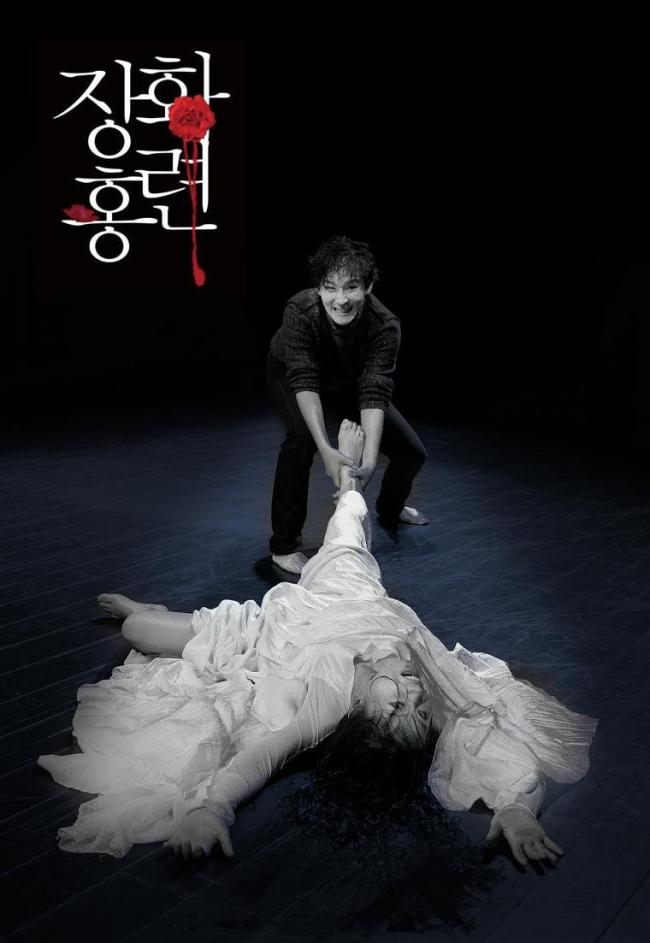What would it be like to watch a pansori performance that’s very much like a horror film?
The National Changgeuk Theater of Korea is presenting “Janghwa Hongryeon” this month in an attempt to create a “changgeuk,” traditional Korean opera, that’s more accessible to today’s public. The piece combines Korea’s traditional vocal and percussion music, pansori, and the folktale’s engaging plot.
The traditional tale of two sisters, who become vengeful ghosts after being killed by their evil stepmother and stepbrother, has been made into a number of film and theater adaptations in the past.
The most famous of them is director Kim Ji-woon’s 2003 psychological thriller “A Tale of Two Sisters.” Back in 2001, theater director Han Tae-sook and playwright Jeong Bok-geum staged the tale’s theater adaptation, “Baejanghwa, Baehongryeon.”
 |
A promotional image of the National Changgeuk Company of Korea’s upcoming show “Janghwa Hongryeon.” (The National Theater of Korea) |
The upcoming show is based on Han and Jeong’s 2001 play, which is set in contemporary Korea and focuses on the sisters’ stepmother and her sense of utter guilt.
In the show, Janghwa is a 23-year-old who is engaged to a loving man and is scheduled to go overseas with him upon their marriage. Hongryeon, who is 21, is also scheduled to leave Korea with her sister and her soon-to-be brother-in-law. The sisters are too excited about their new life in a foreign country, and become rather insensitive about their stepmother and their jealous, disabled stepbrother.
Filled with cruel secrets and danger, the show delves into the issues of Korea’s contemporary society, including the vast public indifference as well as selfishness.
“My goal is to make a changgeuk that can be enjoyed by the general public,” said Kim Sung-nyo, the troupe’s artistic director. “Most of our viewers have been pansori lovers who would come to our shows to enjoy the music. But the upcoming show is actually very much like a contemporary play, with an engaging plot as well as acting. It surely was a challenge for our performers.”
The troupe’s performers are used to the traditional style of pansori, which requires them to move their arms according to the rhythms and the sound of buk, the traditional Korean drum. But there were no buk sounds for this show, and they were restricted from using their arms to perform pansori.
“It really was difficult,” said Kim Keum-mi, who plays the sisters’ stepmother in the show. She burst into tears during the press conference, while talking about the hurdles she faced while playing the role.
“I had to turn back from everything I knew, and my body physically hurt every morning during the rehearsal period.”
Performer Wang Ki-seok, who plays the sisters’ indifferent father in the show, said the show literarily breaks away from the traditional changgeuk.
“We are all aware that this show may not please those who love pansori and changgeuk in their traditional forms,” said Wang. “But this show aims to prove to our viewers that a changgeuk can be different, and it can evolve into something new in future.”
“Janghwa Hongryeon” will be performed at the National Theater of Korea in Jangchung-dong, Seoul, from Nov. 27 to 30. Tickets range from 20,000 won to 70,000 won. For more information, call (02) 2280-4115 or visit www.ntok.go.kr.
By Claire Lee (
dyc@heraldcorp.com)








